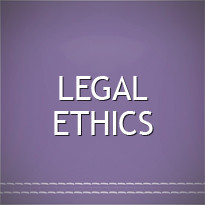In 2005, Atty. Plaridel Nava II filed a motion for inhibition against Prosecutor Ofelia Artuz. Atty. Nava did not want Pros. Artuz to handle a case he filed before the Prosecutor’s Office on the ground that Pros. Artuz had been his adversary in multiple cases, hence, they are not in good terms. In her comment, Pros. Artuz said she will not inhibit unless Atty. Nava can show that he, as legal officer for a local government unit, was given authority to engage in private practice. She however described Atty. Nava as “barbaric, nomadic and outrageous.”
As a result of the descriptive words used by Pros. Artuz, Atty. Nava filed a disbarment case against her. Meanwhile, Pros. Artuz applied for a judgeship position. Atty. Nava filed an opposition to her application on the ground that Pros. Artuz is unfit to be a judge. Atty. Nava also pointed out that in her personal data sheet (PDS), Pros. Artuz failed to disclose that she was facing several administrative and criminal cases which were filed by Atty. Nava and other individuals. Nevertheless, Pros. Artuz was appointed as a judge.
ISSUE: Whether or not Judge Artuz should be removed as a judge.
HELD: Yes. In 2017, the Supreme Court ruled that Artuz deliberately lied in her answers in her PDS to conceal the truth and make it appear that she is qualified for a judgeship position to which she was eventually appointed. Had Artuz disclosed this material fact, the Judicial and Bar Council would have surely disqualified her from nomination for judgeship based on its rules. Her act of making an obviously false statement in her PDS is a clear indication that she does not deserve any position in the judiciary.
Artuz moved for reconsideration. In 2020, the SC affirmed her removal from the judiciary. She was further disbarred due to her multiple infractions. One of which is her use of offensive language in her pleadings. Lawyers should treat their opposing counsels and other lawyers with courtesy, dignity, and civility. A great part of their comfort, as well as of their success at the bar, depends upon their relations with their professional brethren. Since they deal constantly with each other, they must treat one another with trust and respect. Any undue ill feeling between clients should not influence counsels in their conduct and demeanor toward each other. Mutual bickering, unjustified recriminations, and offensive behavior among lawyers not only detract from the dignity of the legal profession, but also constitute highly unprofessional conduct subject to disciplinary action. The hurling of insulting language to describe the opposing counsel is considered conduct unbecoming of the legal profession which should never be countenanced as it tends to degrade the dignity of the legal profession.
Read full texts: 2017 Decision | 2020 Resolution


